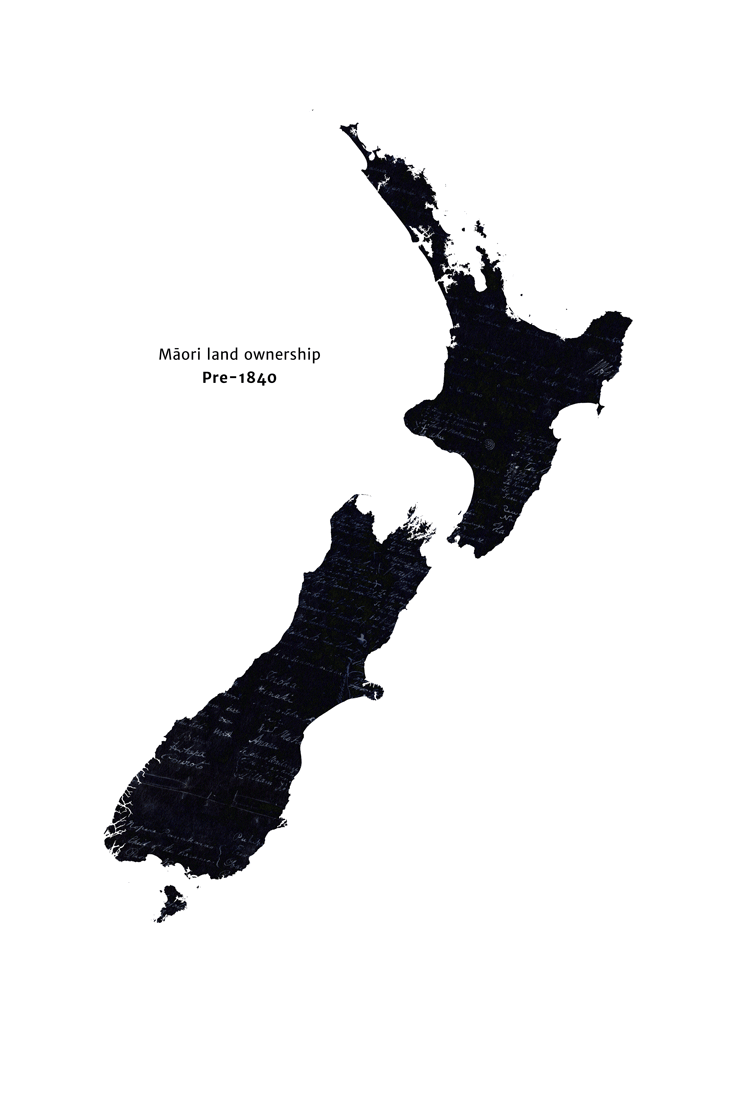He's talking about the process of redress the Government offers, signing deals with iwi which are said to be "full and final" despite only compensating for a minute fraction of what was taken – and refusing to negotiate other issues such as rangatiratanga.
At Ihumātao, the latest in more than a century of land disputes, protest leader Pania Newton discussed how "1100 acres were confiscated" from Te Kawerau a Maki.
"All we have now are 0.067 acres where our marae lies."

The land which was taken, as is the case at Ihumātao, was often gifted to Pākehā families or sold. Its gifting or sale means it sits beyond the scope of the Waitangi Tribunal and settlement process, and isn't really compensated for. Even in the case of Ihumātao, where incredibly historically and culturally significant land was taken, the Crown has refused to negotiate the return or management of that land.
It took the Crown about 44 years to take a quarter of Aotearoa into its control.
Through the land wars, most of New Zealand was taken from Māori but confiscation continued into the late 20th Century.
Sites such as Bastion Point, or as Ngāti Whātua called it Takaparawhau, were whittled away through the 20th Century. The Crown used a variety of techniques to take land from Māori, at Takaparawhau a sewer was built around Ngāti Whātua homes in the 1940s. However, the Ngāti Whātua residents were not allowed to connect their homes to the sewerage system.
By force, the Crown ordered Ngāti Whātua's last remaining homes and marae destroyed in 1952 because Queen Elizabeth II was visiting.

The army, directed by Prime Minister Robert Muldoon in 1978, then forcibly evicted hundreds of supporters of Ngāti Whātua who refused to leave the site which the Crown wanted to use for a housing development. Some land was returned following a 1988 Waitangi Tribunal hearing.
Of course, the Bastion Point story is not unique. Similar protests and attempts to take Māori land occurred in Raglan and Whanganui, among other areas.
The latest case, at Ihumātao, has raised international concern. The UN has raised concerns about the ability for tangata whenua to be consulted and listened to, as well as the ease with which land of special significance can be built on.
The UN concerns arose after Newton spoke in New York, highlighting her long-running protest at Ihumātao.
Iti, who has a long history as an activist protesting against the Crown confiscations and the apartheid Springbok tours, says young leaders such as Newton give him hope about the future.
"There's a whole new form of young people taking this to another step. I'm excited this is happening. We have a voice, they are carrying on from the last 150 to 200 years," he says.

Continued discussions and discontent, even post-settlements, about Treaty rights and responsibilities suggest New Zealand has a long way to go to recognise Māori rights.
The response from the Government has also improved, he says.
"At least we're having these discussions where people have an opportunity to think, whereas back in the day they would have just mowed you down."
Iti, his whānau and iwi in Te Urewera were raided by armed police in 2007, with the Crown alleging and failing to prove they were conducting militia training. With guns and helicopters, the police shut down the town of Ruatoki on a false belief that Iti was working at a paramilitary training camp.
Now, he says, the Government couldn't get away with that. At Ihumātao, rather than dragging protesters away, they're currently in talks.
"They have had to come to the table because of the amazing support, not just on the ground but from around New Zealand and the world. The world is watching."





